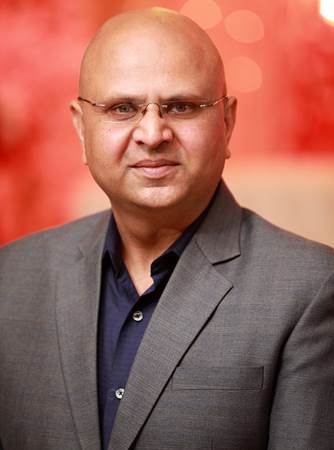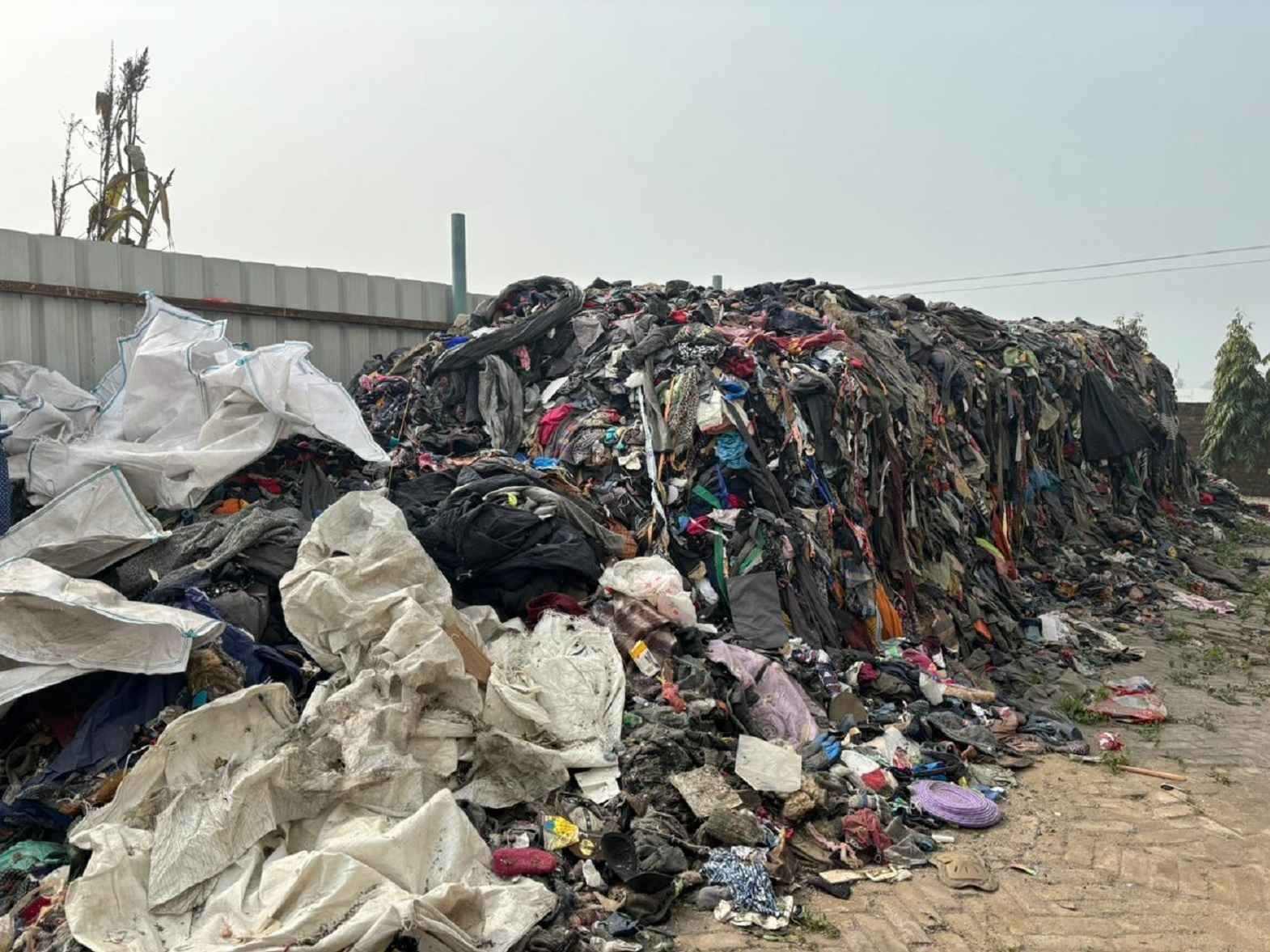In the heart of Haryana, a beacon of sustainable innovation shines brightly – Respun, a unit dedicated to converting post and pre-consumer textile waste into yarn. During a recent visit to this remarkable establishment, I had the privilege of engaging in a profound conversation with Gagan Kansal, the visionary founder of Respun. His commitment to creating a circular economy model for the textile industry left a lasting impact, inspiring me to share this story and its crucial implications for our planet.
Kansal’s journey began with a simple yet profound realisation: the staggering amount of textile waste being sent to landfills. Fuelled by a passion for environmental stewardship, he embarked on the mission to address this issue at its source. Respun, under his leadership, emerged as a pioneering force in recycling textile waste, breathing new life into discarded fabrics.
During our conversation, Mr. Kansal emphasized the urgency of our collective responsibility, stating unequivocally, “There is no planet B”. His words resonated deeply, serving as a stark reminder that our actions today shape the world for future generations. In the face of escalating environmental challenges, Respun stands as a testament to the power of grassroots initiatives in fostering positive change.
The circular economy model adopted by Respun is a beacon of hope for the textile industry. It not only mitigates the environmental impact of textile waste but also offers a sustainable alternative to the conventional linear model of production and disposal. By transforming waste into a valuable resource, Respun exemplifies the essence of circular fashion – an approach that prioritises sustainability and minimises waste throughout the product lifecycle.
My visit to Respun, accompanied by a group of students, proved to be an enlightening educational experience. Witnessing the intricate process of converting textile waste into yarn left an indelible impression on our minds. The students grasped the gravity of the textile industry’s impact on our planet and the imperative need for a shift towards circular fashion.
As the textile industry continues to expand, so does its environmental footprint. The fast fashion culture, characterised by rapid production cycles and disposability, exacerbates this impact. Circular fashion, on the other hand, advocates for durability, repairability, and recyclability. It promotes a conscious consumption ethos that challenges the prevailing norms of the industry.
In a world grappling with climate change and resource depletion, circular fashion emerges as a beacon of sustainability. It offers a viable solution to the environmental crisis induced by the textile industry, redefining the way we produce, consume, and dispose of clothing. By extending the lifecycle of textiles, Respun’s circular model contributes to reducing greenhouse gas emissions, conserving water, and curbing the need for virgin materials.
The transition to circular fashion is not merely a choice but a necessity. The textile industry’s linear approach is no longer tenable in the face of environmental degradation. Circular fashion provides a roadmap towards a regenerative and restorative industry, aligning with the principles of a circular economy.
The success of initiatives like Respun hinges on widespread awareness and collaboration. Individuals, businesses, and policymakers must unite to champion the cause of circular fashion. Consumer choices play a pivotal role – opting for sustainable and eco-friendly clothing sends a powerful message to the industry. Similarly, policymakers can incentivise circular practices and regulate the disposal of textile waste.
In conclusion, my visit to Respun in Panipat, Haryana, was not just an exploration of a sustainable business model but an immersion into a transformative ideology. Kansal’s dedication to creating a circular economy for textiles is an inspiration, reminding us that each effort, no matter how small, contributes to the larger goal of a cleaner and greener planet. As we navigate the challenges of the 21st century, the paradigm shift towards circular fashion is not just desirable; it is imperative for the well-being of our planet and future generations.

Gagan Kansal, Founder of Respun
Here are the excerpts from my conversation with Kansal:
1. What inspired you to establish Respun, and how has the company evolved since its inception?
I have been involved in the textile industry for almost 30 years, starting with a yarn spinning unit in 1995. We transitioned towards producing recycled yarns from pre-consumer textile waste by 2008. As we envisioned the significant amount of textile waste and the positive environmental impact of recycled products, we set up Respun in 2016. Since then, we have been gradually moving towards our goal of recycling 100 per cent post-consumer discarded textiles.
2. Can you walk us through the key operational processes at Respun, from the collection of textiles to the final recycling stage?
At Respun, our vision is to achieve 100 per cent recycling of post-consumer waste textiles. To realise this goal, we begin by collecting end-of-use textiles from various sources such as collectors, aggregators, NGOs, corporate offices, workwear, and housing societies. Upon arrival at our facility, the materials undergo meticulous manual sorting by skilled women labourers from nearby villages. They categorise the materials by colour and composition, meticulously removing any contaminants.
Once cleaned and sorted, the materials are shredded to break them down into smaller pieces. These shredded materials then enter our recycling line, where they are transformed into recycled fibre. This versatile material finds applications in spinning, felting, nonwoven fabrics, insulation, and more, depending on its quality and characteristics.
3. Textile recycling poses several challenges. What obstacles did you face while establishing and running Respun, and how did you overcome them?
The challenges begin right from the initial step of collecting the material. Sourcing post-consumer textiles can be quite challenging, as people often dispose of their clothes in the trash after use. Additionally, extracting value from collected heterogeneous materials poses difficulties, and our challenge lies in maximising sorting efficiency to ensure effective processing. Moreover, the constantly evolving fashion trends, characterised by mixed blends and new products, add to the ongoing challenges. Despite these obstacles, we remain committed to improvement and progress in our recycling efforts.
4. What is Respun’s current recycling capacity, and has there been any expansion or scaling of operations since its establishment?
At present, we recycle 10,000 kilogram of post-consumer waste every day, marking a significant milestone in our efforts. Through our endeavours, we have successfully increased the utilisation of post-consumer waste to 70 per cent. Looking ahead, our vision for the next five years is to scale up our operations further, aiming to recycle 50 tonnes of post-consumer waste daily.
5. How does Respun ensure the quality and integrity of the recycled textiles, and are there any industry certifications or standards the company adheres to?
We have highly trained in-house workforce and state-of-the-art machinery, which are instrumental in driving our recycling operations. We are also certified to the Global Recycling Standard, SEDEX, ISO 9001, and ISO 14001. Looking ahead, we plan to further enhance our efficiency by developing a semi-automated sorting system.
6. Could you share any community engagement initiatives or programmes that Respun has undertaken to involve and educate the local community in sustainable practices?
Our general awareness programmes are regularly hosted in collaboration with institutions, including textile schools, NGOs such as Lions Club, and waste management organisations like Green Worms and Ecowise. Additionally, we have established affiliations with prestigious institutions like IIT Delhi and prominent industrial textile associations such as FICCI and PHD Chamber of Commerce.
Furthermore, we collaborate with corporations such as DHL and GMR, as well as brands like Lacoste and Uniqlo.
7. How does Respun prioritise the well-being of its employees? Are there any initiatives in place to ensure a positive working environment?
We prioritise hiring workers from local villages and are dedicated to providing them with a positive work environment. Through initiatives such as flexible working hours, telecommuting options, and comprehensive employee insurance coverage, we strive to meet their needs while fostering a healthy work-life balance.
8. According to you, how has public awareness and concern regarding sustainability evolved over the past few years, and what trends do you foresee?
Consumer awareness of pollution remains low, particularly in the realm of fashion. To initiate change, we must prioritise purchasing durable, sustainable clothing over low-quality fast fashion. Recognising that change begins at home, we should responsibly dispose of end-of-life textiles.
9. What do you believe individuals and businesses can do on a day-to-day basis to contribute positively to the world, considering factors like sustainability and social responsibility?
Change indeed starts at home. An organisation should aim for 360-degree elevation, focusing on empowering employees, ecosystems, and the surrounding community to work more efficiently. Particularly in the textile industry, we should prioritise buying fewer but more durable products and extend their usage over longer periods of time.
10. How do you believe design schools contribute to fostering sustainability and encouraging circular practices within the fashion industry, and what impact does this have on the next generation of designers?
Design students possess immense potential to revolutionise the fashion and textile industry, potentially positioning India as a champion of recycling in the future. Future generations of design students should prioritise utilising recycled raw materials for new product development, ensuring that these materials can be effectively recycled at the end of their lifecycle without harming the environment.
11. What, in your view, is the most crucial role that governments can play in promoting and advancing sustainability initiatives, especially in industries like fashion and textiles?
Initiating awareness campaigns for consumers, alongside promoting responsible production and disposal practices, can significantly impact positive change.
12. What are Respun’s future plans and goals? Are there any plans for expanding operations or introducing new initiatives in the near future?
We aim to augment our production from 10 tonnes to 50 tonnes per day and expand our operations nationwide. Moreover, our goal is to enhance our collection methods and introduce new product development initiatives.









Comments